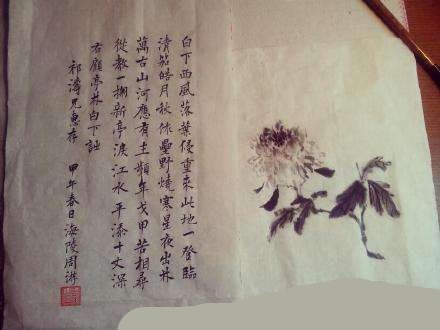(单词翻译:单击)
顾炎武(1613—1682)本名继坤,改名绛,字忠清;南都败后,改炎武,字宁人,号亭林,自署蒋山俑,学者尊称为亭林先生。汉族,南直隶苏州府昆山(今属江苏)人 。明末清初著名的思想家、史学家、语言学家。与黄宗羲、王夫之并称为明末清初三大儒。明季诸生,青年时发愤为经世致用之学,并参加昆山抗清义军,败后漫游南北,曾十谒明陵,晚岁卒于曲沃。康熙间被举鸿博,坚拒不就。其学以博学于文,行己有耻为主,合学与行、治学与经世为一。著作繁多,以毕生心力所著为《日知录》,另有《音学五书》、《亭林诗文集》等。学问渊博,于国家典制、郡邑掌故、天文仪象、河漕、兵农及经史百家、音韵训诂之学,都有研究。晚年治经重考证,开清代朴学风气。其学以博学于文,行己有耻为主,合学与行、治学与经世为一。诗多伤时感事之作。

《白下》 顾炎武
白下西风落叶侵,重来此地一登临。
清笳皓月秋依垒,野烧寒星夜出林。
万古河山应有主,频年戈甲苦相寻。
从教一掬新亭泪,江水平添十丈深。
Po-hsia(1)
Ku Yen-wu
Fallen leaves, driven by the wind, invade Po-hsia;
Again I've come to this place, climbed up for a view.
A reed pipe clear, the moon bright—autumn lingers on the ramparts;
The wilds ablaze, cold stars emerge from the forest at night.
These ancient hills and streams must have a master,
But for years, with spears and armor, we've searched hard and long.
Let each of us fill our hands with New Pavilion tears(2)
And make the river rise at once ten fathoms full.
1. An important garrison town near the ancient Chien-K'ang, modern-day Nanking.
2. I.e., Hsin-t'ing, located in a suburb of Chien-k'ang, where the literati often gathered in the Six Dynasties period to lament the loss of North China to non-Chinese tribal peoples.
更多精品翻译素材,敬请关注可可英语。


